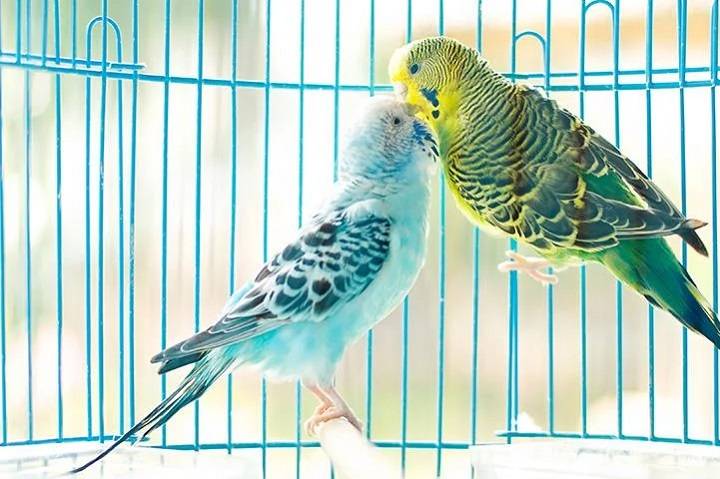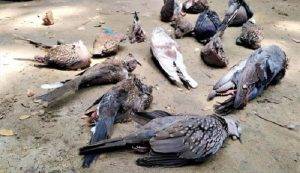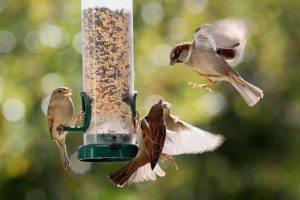Birds are delightful and intelligent creatures that bring joy and beauty to our lives. Whether you have pet birds or enjoy watching wild birds in your yard, creating a bird-safe environment is essential to ensure their well-being. One of the most critical aspects of bird safety is protecting them from potential poisons that can have devastating consequences. In this comprehensive guide, we will explore how you can safeguard your feathered friends from harm by creating a bird-friendly, poison-free environment.
The Dangers of Poison for Birds
Birds, both captive and wild, are highly susceptible to poisoning due to their small size, rapid metabolism, and unique physiology. Exposure to even small amounts of toxic substances can have severe and often fatal consequences for these delicate creatures. Common sources of poison for birds include:
- Chemical Pesticides: Insecticides, herbicides, and rodenticides can be highly toxic to birds if ingested or if they come into contact with contaminated surfaces.
- Toxic Plants: Certain plants are toxic to birds when ingested. Birds may nibble on leaves, flowers, or berries from toxic plant species, leading to poisoning.
- Lead: Lead poisoning is a significant threat to birds. They may ingest lead particles from contaminated soil, paint chips, or lead-based materials.
- Household Chemicals: Cleaning products, aerosols, and other household chemicals can emit fumes or residues that are harmful to birds if they are inhaled or come into contact with them.
- Food Toxins: Some human foods, such as chocolate, caffeine, and avocado, are toxic to birds and can cause illness or death if ingested.
Tips for Creating a Bird-Safe Environment
Ensuring the safety of your birds, whether they are pets or wild visitors to your yard, is a responsibility that requires vigilance and care. Here are essential tips to help you protect your feathered friends from poison and provide them with a safe habitat:
Choose Non-Toxic Plants
If you have a garden or indoor plants, research and select non-toxic plant species that are safe for birds. Avoid plants known to be toxic to birds, such as oleander, azaleas, and rhododendrons. Be cautious about pesticides or fertilizers used in your garden, as residues can be harmful.
Use Bird-Safe Pest Control
If you need to manage pests in your home or garden, opt for bird-safe pest control methods. Consider using natural or organic alternatives to chemical pesticides, which can be toxic to birds. Implement integrated pest management strategies to reduce the need for pesticides.
Safeguard Windows
Collisions with windows are a significant threat to birds. Install window decals or bird-friendly window films to make windows more visible to birds. Positioning feeders and birdbaths away from windows can also reduce the risk of collisions.
Keep Lead Away
Lead poisoning is a severe threat to birds, especially through the ingestion of lead particles. If you have older homes with lead-based paint, take steps to address and mitigate lead hazards. Ensure that your birds do not have access to lead-containing materials.
Bird-Proof Your Home
If you have pet birds, bird-proof your home to prevent access to toxic substances. Store household chemicals, including cleaning products and aerosols, securely out of reach of your birds. Be cautious when using non-stick cookware, as the fumes emitted from overheating can be lethal to birds.
Provide Safe Food
Offer a well-balanced and safe diet to your pet birds. Be aware of foods that are toxic to birds, such as chocolate, caffeine, alcohol, and avocado. Avoid feeding them processed or high-sugar foods.
Monitor Indoor Air Quality
Ensure good indoor air quality in the area where your pet birds live. Use air purifiers if necessary to remove potential pollutants and irritants from the air. Avoid smoking in the presence of your birds, as secondhand smoke can harm them.
Offer Fresh Water
Provide a source of fresh, clean water for your birds, both indoors and outdoors. Regularly clean and disinfect birdbaths to prevent the growth of harmful bacteria. Avoid the use of chemicals or pesticides in birdbaths.
Choose Safe Cage Accessories
Select cage accessories, toys, and perches that are made from bird-safe materials. Avoid items that contain lead or zinc, as these can be toxic to birds if ingested or chewed.
Educate Yourself
Stay informed about potential hazards and risks to birds. Educate yourself about the specific needs and sensitivities of the bird species you care for or attract to your yard. Knowledge is a powerful tool in creating a safe environment.
Tips for a Bird-Safe Outdoor Environment
If you enjoy attracting wild birds to your yard or outdoor space, follow these additional tips to create a safe and inviting environment for them:
Natural Food Sources
Plant native trees, shrubs, and flowers that provide natural food sources, such as berries, seeds, and nectar, for wild birds. Avoid using chemical pesticides or herbicides that can contaminate these food sources.
Clean Feeding Stations
Keep bird feeders and feeding areas clean to prevent the growth of mold and bacteria, which can be harmful to birds. Regularly disinfect feeders and provide fresh, uncontaminated food.
Fresh Water
Offer a source of fresh, clean water for wild birds in your yard. Birdbaths and water features can attract a variety of bird species. Change the water regularly to prevent stagnation.
Safe Roosting Spots
Create safe roosting spots for birds by providing shelter and nesting boxes. Ensure that nesting boxes are properly designed for the species you wish to attract and are free from potential hazards.
Natural Predators
Encourage natural predators like owls and hawks in your area. They can help manage pest populations and contribute to the overall health of the ecosystem.
Remove Hazardous Materials
Regularly inspect your outdoor space for potential hazards like discarded trash, fishing lines, or toxic chemicals. Dispose of hazardous materials properly to prevent harm to birds.
No Harmful Decorations
Avoid using decorations that can harm birds, such as balloons or string lights that birds may become entangled in. Choose decorations that are bird-friendly and pose no risk.
Keep Cats Indoors
If you have outdoor cats, keep them indoors or use cat enclosures to prevent them from hunting or disturbing birds in your yard. Cats are a significant threat to wild birds.
How Can I Protect My Birds from Poison
If you suspect that a bird, whether pet or wild, has been exposed to poison, seek immediate professional veterinary or wildlife rehabilitation assistance. Early intervention is critical in poisoning cases, and trained professionals can provide the best care and treatment.
FAQs (Frequently Asked Questions)
What are some common signs of poisoning in birds?
Common signs of poisoning in birds may include loss of appetite, weakness, difficulty breathing, disorientation, seizures, vomiting, diarrhea, and changes in plumage. If you suspect poisoning, seek immediate veterinary assistance.
Are there any safe alternatives to chemical pesticides for managing pests in my garden?
Yes, there are several safe alternatives to chemical pesticides, including neem oil, diatomaceous earth, and companion planting. Research and choose methods that are safe for both birds and your garden.
Can I use tap water in birdbaths and for my pet birds?
In most cases, tap water is safe for birdbaths and pet birds. However, it’s essential to ensure that the water is clean and free from contaminants. If you have concerns about water quality, you can use a water conditioner or provide filtered water.
What should I do if I find an injured wild bird in my yard?
If you find an injured wild bird, contact a local wildlife rehabilitation center or a licensed wildlife rehabilitator for guidance. Do not attempt to care for the bird yourself, as it requires specialized knowledge and equipment.
How can I discourage wild birds from nesting in areas that are unsafe, such as vents or chimneys?
To discourage nesting in unsafe areas, use deterrents like bird spikes or netting. Ensure that these methods do not harm the birds but prevent them from accessing hazardous locations.
Related Post:
Unlocking the Mysteries of Duck Egg Laying: How Often Do Ducks Lay Eggs?
When Do Ducks Start Quacking? Unraveling the Quack-tastic Mystery
Exploring the Enigmatic Ancona Duck: A Quirky, Beautiful, and Versatile Breed
Creating a bird-safe environment and protecting your feathered friends from poison requires diligence and commitment. Whether you have pet birds or enjoy the company of wild birds in your outdoor space, your actions can make a significant difference in their well-being. By choosing non-toxic plants, using bird-safe pest control, safeguarding windows, keeping lead away, bird-proofing your home, offering safe food and clean water, and staying informed, you can help ensure that birds thrive in a safe and nurturing environment. Your efforts contribute to the preservation and appreciation of these marvelous creatures for generations to come.




